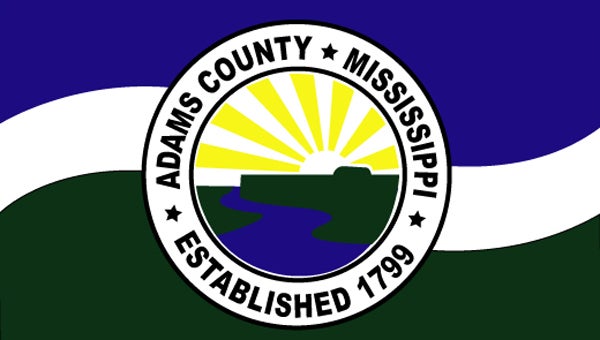Giving voice: Documentary to tell Parchman Ordeal story
Published 12:05 am Tuesday, July 21, 2015

G. Mark LaFrancis and Darrell White have been busy using their studio lights and cameras to put together the trailer for their documentary on the October 1965 incident when black protesters were taken to Parchman Penitentiary. The trailer will be shown at the Southern Christian Leadership Conference’s annual convention Saturday. (Ben Hillyer/The Natchez Democrat)
NATCHEZ — In October 1965, approximately 700 civil rights protesters were whisked away from Natchez to Parchman.
At Parchman Penitentiary, they endured physical and mental abuse. Almost 50 years later, Darrell White, executive director of the Natchez Museum of African American History and Culture, and Galen Mark LaFrancis are putting together a documentary about the event.
The trailer for “The Parchman Ordeal: The Untold Story” will be presented for the first time on Saturday at the Southern Christian Leadership Conference’s annual convention.
The documentary details an infamous event in Natchez history. After a tumultuous year for civil rights in the city, a march for voting rights was planned.
When protesters left churches, they were immediately put on buses and taken to the Natchez City Auditorium. They were then arrested for parading without a permit.
However, White said protesters were arrested before they violated the ordinance, which was later found to be unconstitutional.
Some then made the trip to Parchman Penitentiary, approximately 200 miles away, where they endured abuse and humiliation, historians recount. The protesters never went before a judge, never had their day in court.
White said he was inspired to do the documentary by the 2014 Natchez Literary and Cinema Celebration. At the celebration, people who lived through the Civil Rights Movement in Natchez spoke in a public forum.
“The downside to that was the only ones who heard what they had to say were those that were in that room,” White said. “Their stories needed to be told and heard by a larger audience.”
White received a grant for an oral history project from the Mississippi Humanities Council on the Parchman Ordeal.
However, the project turned into a documentary to reach a wider audience. White and LaFrancis took video of Natchez and interviewees to create a visual document.
LaFrancis worked as video editor and White took on the role of lead interviewer. White said they found names of those involved through arrest records and community contacts like Dr. Betty Cade, the daughter of the Rev. Shead Baldwin, a respected civil rights leader.
Along with approximately six other contributors, they’ve interviewed about 20 individuals so far.
“Many of them were told to just get over it,” White said. “But the abuse endured by those who were sent to Parchman did not easily go away.”
However, LaFrancis said the documentary is not about shame.
“We want to tell a story of humiliation and survival by people who still live in this community,” LaFrancis said.
White agrees, emphasizing the project is about the resiliency of those involved.
“They regret what they had to go through,” White said. “But they don’t regret having taken a stand and standing up for what they believe. And there were folks who said they would do it all again.”
More than anything though, White and LaFrancis just want to tell the story of those who went through the Parchman Ordeal to their community, and to the world.
“The story is to give voice to the people who have held this experience bottled up coming close to 50 years now,” White said.
They hope to have the approximately 47-minute documentary done in February.
For those interested in donating to the project, White can be reached at 601-445-0728.






